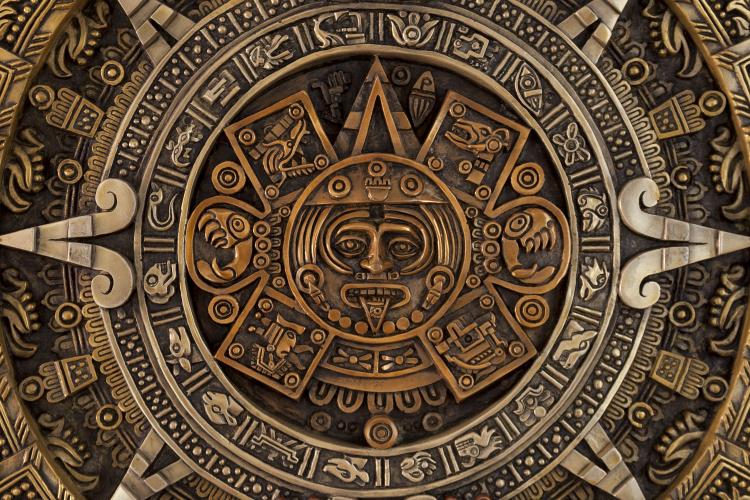Hey blog I'm back! My team is really interested in incorporating pseudoscience into our film so I took it into my own hands to research and learn more about what it really is. Pseudoscience is a set of theories and practices that are mistakenly said to be "scientific". This term became more broadly used in the mid 19th century. Pseudoscience is merely based off of speculation and mythology as these practices can't be proven to work. In this blog I will be examining two topics that are considered pseudoscience, the 2012 Phenomenon, and the Lunar Effect.
2012 Phenomenon:
The 2012 phenomenon is often associated with apocalyptic theories. This phenomenon led people to believe something significant would occur on December 21, 2012. Most people believed this date would mark the end of the world or some big transformation. The phenomenon can be traced back to the "Mayan Long Count Calendar". This calendar is measured in "baktuns" which is an over 396 year cycle. The end of the 13th baktun would be on December 21, 2012. Now, the number 13 has never really been associated with anything good hence Friday, the 13th. In fact, around 10% of the US population has a fear of the number 13, or triskaidekaphobia. Multiple apocalyptic narratives got mixed into the 2012 phenomenon which would continuously fuel concerns around the world. While the date rolled around and many didn't get the "thrill" they expected beliefs related to this date still continue to shape our society.
Mayan Calendar:

Sources:
https://www.history.com/topics/religion/december-21-2012
https://www.history.com/news/whats-so-unlucky-about-the-number-13
https://www.universalworkshop.com/maya-calendar-end-time/
The Lunar Effect:
The Lunar Effect suggests there is a correlation between stages of the lunar year and cognitive and behavioral changes in humans such as mood and even crime rates. This theory had first been studied in the 1970s by Arnold Lieber who theorized the moon has a significant influence of the body's "biological tides", but this didn't gain a lot of attention until the 1980s. One of the first comments about the topic was in Shakespeares "Othello" where Emilia explains the moon is too close to the earth and is making men go insane. In fact, the word "lunatic" comes from the idea that the lunar cycle affects our mental state. This theory to this day cannot be proven completely true but there is definitely a correlation between human emotions and the moon phase.
How lunar cycles affect sleep patterns:

Sources:
https://www.sci.news/othersciences/anthropology/science-full-moon-disturb-human-sleep-01264.html
https://www.healthline.com/health/full-moon-effects#full-moon-and-sleep
https://www.rmg.co.uk/stories/topics/can-moon-affect-our-health-behaviour

No comments:
Post a Comment